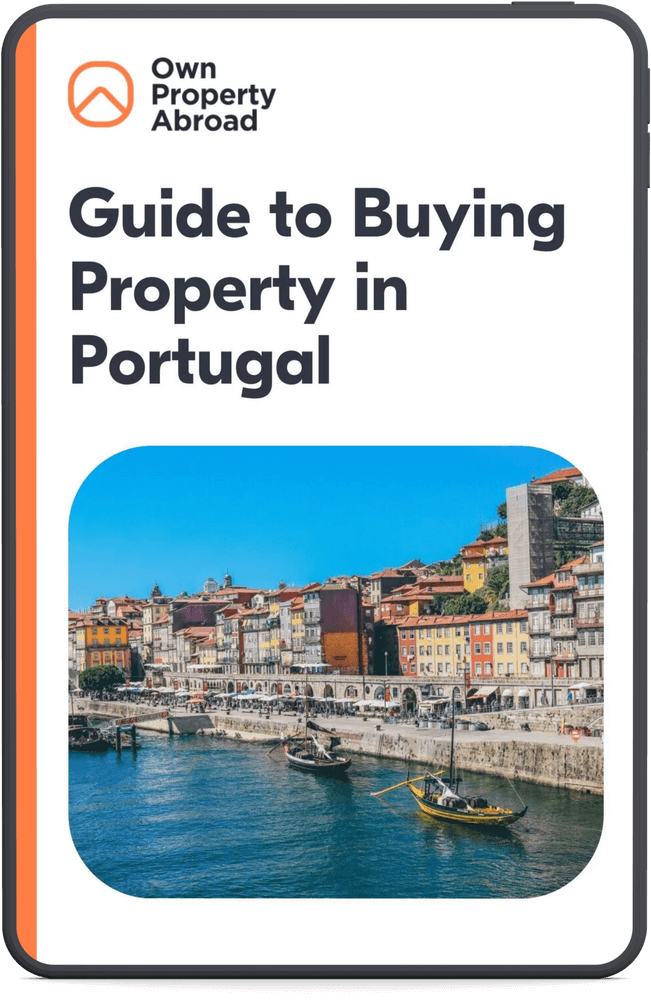Can EU citizens buy property in Portugal?
Yes, you can buy property in Portugal as a European citizen. There are no restrictions on EU citizens purchasing real estate in the country. They must, however, comply with the legal procedures and obligations involved in the buying process, similar to other foreigners. These procedures and responsibilities are explained in the eight steps below.
Valuable insights and practical advice, distilled from years of expertise and real-world experience.


8 steps to buy property in Portugal as a European citizen
One can buy property in Portugal as a European citizen by following the eight steps below.
Step 1: Get a Portuguese tax number (NIF)
The first step in any property transaction for EU citizens is getting a Portuguese tax number (NIF). The NIF in Portugal is essential when you want to enter into transactions, especially those involving the transfer of property ownership. A Portuguese taxpayer card is necessary for business dealings, such as if you want to rent out your property.
Take the first step towards obtaining your Portuguese NIF by clicking the button below and completing the process online. For only $150, you can easily acquire your NIF and enjoy the benefits it offers.
Step 2: Open a bank account in Portugal
Opening a bank account is necessary to facilitate financial transactions related to the property, such as making payments, receiving funds, and managing ongoing expenses. Foreigners have many options, including Millenium BCP, Novo Banco, Banco BPI, Banco Santander Totta, and Caixa Geral de Depositos.
When opening a bank account, prepare necessary documents such as a passport, proof of address, proof of employment, NIF, contact number, and a cash deposit of at least €250 ($273).
You can open a bank account in Portugal through an online service, that allows you to open a bank account remotely (3 to 4 weeks) or in-person (1 to 2 weeks). Click the button below to get started.
Step 3: Find a Portuguese real estate agent
European citizens should opt to hire a real estate agent. Even if you have been to Portugal often, nothing beats having a professional find you the best property and help you close a deal. You should use a real estate agent for many reasons, and they are necessary if you want the most efficient and hassle-free process when you buy property in Portugal as a European citizen.
Step 4: Find a Portugal-based notary
You need to have a Portugal-based notary to contact if you want to buy property in Portugal as a European citizen. Why? The Deed of Purchase and Sale (escritura de compra e venda), which finalizes the property sale, must be signed before a notary. It makes the agreement legally binding, and the contract has a legal effect.
Step 5: Conduct due diligence
No matter where you are in the world, when you buy property, due diligence is crucial. Buying land in Portugal has many legal ramifications. Hence, conducting due diligence is necessary so that you are free from any encumbrances you are unaware of when you finally own the property. Due diligence is also essential to avoid paying penalties and having a bad record with the Portuguese authorities.
Step 6: Sign the provisional sale agreement and pay a downpayment
A temporary sale agreement, or a promissory contract, is a document signed by the buyer and seller before a final sale. It is a document that, in the meantime, serves to guarantee the sale while due diligence is still ongoing. Simultaneous with signing the provisional sale agreement is making a down payment, which can also serve as a security deposit.
Step 7: Sign the final Deed of Purchase and Sale contract
The step that technically closes a deal is signing the Deed of Purchase and Sale agreement. As mentioned, it should be in the presence of a notary to guarantee the document’s authenticity and legality. By signing the Deed of Purchase and Sale, the buyer’s property ownership becomes official, and the rights and obligations outlined in the agreement are established
It’s crucial to complete the registration process with the land registry office when you buy property in Portugal as a European citizen. This strengthens the binding nature of the transaction further.
Step 8: Pay the property taxes
It is essential to fulfill the obligation of paying the property taxes associated with purchasing property. These taxes include the transfer tax (IMT), annual property tax (IMI), wealth tax if applicable (AIMI), and stamp duty tax (Imposto do Selo), depending on the specific circumstances. It is necessary to understand the tax requirements, calculate the amounts owed, and make timely payments to ensure that you have full ownership over your property.
Working with a reputable real estate agent in Portugal
Working with an experienced real estate agent when you want to buy property in Portugal as a European citizen is smart. Their extensive knowledge of market conditions and negotiation tactics will ensure you get your money’s worth. To find a reputable agent, consider conducting thorough research, seeking recommendations, and evaluating client reviews.
Buy property in Portugal with Own Property Abroad
Do you want to buy property in Portugal as a European citizen? Own Property Abroad can assist you and ensure a seamless and hassle-free property journey, whether selling or buying real estate in Portugal. Thanks to our knowledge and experience in the local market, we can help with legal requirements, finding suitable properties, negotiating the best deals, and conducting due diligence.
With our expert team, you won’t have to navigate the complexities of the Portuguese real estate market alone. For further information on how we can assist you, kindly drop your details below or email us at [email protected]. Let’s start working on your property success story today!
Valuable insights and practical advice, distilled from years of expertise and real-world experience.


Frequently Asked Questions (FAQs)
Can EU citizens buy property in Portugal?
Yes, EU citizens can buy property in Portugal. There is no specific restriction against them purchasing property in the country, which distinguishes them from non-EU citizens.
Can EU citizens live in Portugal?
Yes, EU citizens have the right to live and reside in Portugal. As members of the European Union, they are entitled to freedom of movement within the EU, including the right to live and work in Portugal without additional visas or permits.
How do EU citizens get Portuguese residency?
EU citizens can apply for a registration certificate of permanent residence once they have resided in Portugal for more than five years.





2 Responses
I am considering buying a residential property in Portugal.
Hi Colm, purchasing residential property in Portugal can be an excellent investment! I highly recommend our e-book, which thoroughly details the property buying process in Portugal and covers all essential aspects related to your purchase. You can find it here.